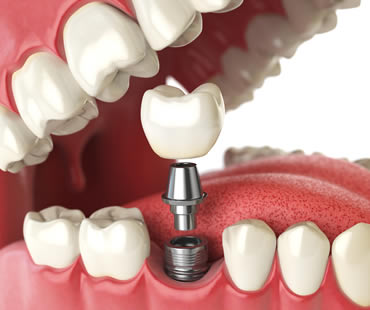
by Dr. Adkins | Mar 3, 2023 | Blog, Dental Topics 1, General Dentistry
Each year, more than 30,000 Americans receive an oral cancer diagnosis. Unfortunately, less than 57 percent will live beyond five years. In fact, the death rate for oral cancer is higher than cervical cancer, Hodgkin’s disease, brain cancer, and liver cancer. Usually seen in older patients, oral cancer in individuals under 40 is on the rise.
Fast Facts about Oral Cancer
• Early detection increases the survival rate to almost 90 percent.
• Initially, oral cancer patients may have few obvious symptoms of the illness.
• Certain factors, such as gender, lifestyle choices, and age can increase your risk of developing oral cancer. An estimated 25 percent of oral cancer patients, however, have no risk factors for the disease.
• Famous people who have battled oral cancer include Michael Douglas, Roger Ebert, Aaron Spelling, Humphrey Bogart, Eddie Van Halen, and Babe Ruth.
• Signs of oral cancer include a sore that does not heal after two weeks, color change in oral tissue, hoarse or scratchy throat, and difficulty with chewing or swallowing.
• Side effects of oral cancer may include chronic discomfort, loss of oral function, and difficulty in chewing, swallowing, or speaking.
• Research suggests that a diet rich in fruits and vegetables decreases your chances of developing cancerous lesions.
• Routine dental visits allow your dentist to look for signs of oral cancer, which can lead to early detection if there is a problem.
• Tobacco and alcohol use can result in a 75 percent chance of receiving an oral cancer diagnosis.
We treat patients from McDonough and the surrounding area

by Dr. Adkins | Feb 17, 2023 | Blog, Dental Topics 1, Implant Dentistry
Preserving the bone in your jaw and face is of utmost importance to your cosmetic dentist, and as such, treatments that preserve bone are preferred over those that lead to bone shrinkage, known as resorption.
Dental implants preserve bone by mimicking the tooth’s natural roots, stimulating and preserving the bone. As part of the healing process following surgical placement, the jawbone fuses directly to the implant. Most often made of titanium, dental implants provide a very stable foundation for a replacement tooth. This foundation is so stable that it can serve as an anchor point for dental bridgework and will feel, look, and function as your natural tooth would.
The process of implant to bone fusion is known as “osseointegration.” Fusion is primarily dependent upon the quality of bone surrounding the implant, and can be achieved in three to nine months following dental implant treatment. Excessive smoking or drinking can stunt the healing process and lead to complications.
Because bone resorption is prevented with dental implants, your facial structure will not collapse and your facial shape will not change. Missing teeth that are replaced by implants avoid other problems commonly associated with tooth loss, including other teeth shifting into the open spaces created by the missing teeth, and functional problems with the jaw joints and bite alignment.
Once a tooth is extracted or falls out, a great deal of the bone in the area will shrink, or resorb over the coming year. Shrinkage occurs in a horizontal as well as vertical dimension. Most resorption occurs within the first two to three months following tooth loss. When a cosmetic dentist replaces that tooth immediately with a titanium dental implant, the bone fuses around the implant, significantly reducing bone shrinkage.
Dental implants are the only restorative treatment that preserves and maintains bone. Dentures and partial dentures can accelerate the process of bone shrinkage as a result of pressure on the underlying mouth structures as you talk or eat.
We look forward to seeing you in our McDonough dental office

by Dr. Adkins | Feb 3, 2023 | Blog, Dental Topics 1, General Dentistry
Why wait until you have a toothache, bleeding gums, bad breath, or other problems to decide it’s time to start focusing on your oral health? Your mouth and your whole body can benefit from maintaining good oral health. Here is some simple advice that will help you along the path to a healthy smile.
Brushing and flossing
Tooth decay and gum disease are both preventable with proper brushing and flossing. Brush with a soft-bristled toothbrush and fluoride toothpaste, using a circular motion. It’s best to brush after every meal, but twice a day should be the minimum. Gently floss your teeth daily to remove food particles and bacteria between your teeth.
Eating right
Focusing on eating foods from each food group will aid your oral health in addition to your overall health. Not getting essential nutrients in your diet increases your risk of gum disease, and also makes it more difficult for your body to resist infection. Eat low fat dairy items, lean proteins, vegetables, fruits, and whole grains. Look for foods low in sugar, which can lead to tooth decay. Avoid snacking too much during the day when you aren’t going to brush your teeth afterwards, and drink plenty of water throughout the day.
Seeing your dentist
Visit your dentist at least twice a year for checkups. During these appointments, your dentist will look for problems and professionally clean your teeth. Delays in treatment of some conditions can cause them to worsen to the point that treatment may be more painful, difficult, or costly. Your dentist will help you keep your teeth and gums healthy so that you can keep smiling as long as possible.
We treat patients from McDonough and the surrounding area

by Dr. Adkins | Jan 27, 2023 | Blog, Dental Topics 1, Implant Dentistry
Losing teeth for one reason or another is not as uncommon as you might think. Injuries and severe tooth decay are only a couple of the causes for smiles to have holes in them from missing teeth. The good news is that you don’t have to go through life with an incomplete smile. Dental implants provide one solution for replacing lost teeth.
Popularity
These restorations that involve a titanium root with an artificial tooth on top have become increasingly popular. Instead of using bridges or dentures that are known to have some hassles with them, implants are a permanent and secure solution. Once the area has healed, you can go back to your normal habits without any concerns related to the implant. They look very natural, preserve neighboring teeth, improve speech, restore the mouth’s function, and help maintain your facial features.
Candidates
Good candidates for implants have strong enough jaw bones to be able to support the implant. Patients with significant bone loss may not be able to successfully maintain implants. Good oral health is helpful, as is good general health since surgery is required. Smokers and those with certain health conditions may not be recommended for dental implants.
Procedure
Once you’ve been identified as a good candidate, the first step is having the titanium rod inserted into your jaw bone. It can take up to three months for it to completely fuse with your bones. Then your dentist will make an abutment to hold the implant, and a mold will be taken of your mouth so that the crown can be created. Until it is ready, a temporary crown will be placed. Finally, your crown will be placed and adjustments will be made if needed.
Maintenance
After you implant is complete, you can resume your regular lifestyle. Your normal dental hygiene routine of brushing, flossing, and checkups should be maintained for the best results.
We offer dental implants at our McDonough dental office.

by Dr. Adkins | Jan 20, 2023 | Blog, Dental Topics 1, Implant Dentistry
Missing teeth can put a damper on your active lifestyle. You may feel self-conscious about your appearance, experience limitations in diet, or have difficulty speaking. Without a full set of teeth, you risk gum degeneration, bone loss, and other oral health problems. Designed to mimic the look and feel of natural teeth, dental implants can rejuvenate your smile.
What is a dental implant?
A small titanium post that serves as an artificial tooth root, a dental implant is surgically positioned into your gums. Your dentist will place a permanent crown on each implant, which completes the replacement tooth. Implants can be used for one or more missing teeth.
Am I a candidate for dental implants?
In general, anyone with a missing tooth should consider dental implants. The key to successful implant placement is good oral health and sufficient bone structure to support the posts. If you don’t have adequate bone levels, your dentist may recommend a bone graft to correct that situation.
How long does the procedure take?
Receiving dental implants is a two-step process. During the first visit, a trained specialist will surgically implant the posts into your jawbone. Then, you will need to wait three to six months for healing and integration with the jawbone. Once this occurs, your dentist will place the permanent crowns on the implants, giving you a full smile.
How do I care for my implants?
Just like your natural teeth, your implants require daily care. Brush often and floss frequently. Regular dental checkups are also important, so schedule visits at least twice a year.
Schedule your appointment at our McDonough dental office

by Dr. Adkins | Dec 23, 2022 | Blog, Dental Topics 1, General Dentistry
Cleaning between your teeth and along your gums with dental floss is just as important as using your toothbrush. Although many people complain about flossing or completely avoid doing it, there should be no excuse for neglecting this part of your dental hygiene routine.
Flossing your teeth allows you to get rid of food particles and plaque that is caught between your teeth. It is able to reach areas that your toothbrush can’t. Therefore, flossing plays a key role in preventing tooth decay, gum disease, and bad breath.
You should floss your teeth at least once every day, using a gentle touch so you don’t damage your gums. You can use waxed or unwaxed dental floss, depending upon your preference and which one works best for you. Interdental cleaning aids like picks and sticks may also be carefully used, as well as floss holders. These tools are especially helpful for those with arthritis and vision problems.
Another item that may help remove trapped food debris is a water spray tool called an oral irrigator, although it shouldn’t replace flossing. The same is true for mouthwash, which may be used to help rinse away germs and temporarily freshen breath. You can add these items to your hygiene routine, but giving up flossing should not be an option. Using dental floss is the very best way to attack food particles and plaque so that you have the greatest chance for a healthy mouth.
Dr. Adkins is a family and cosmetic dentist in McDonough








 (470) 665-5292
(470) 665-5292  E-Mail Us
E-Mail Us 
